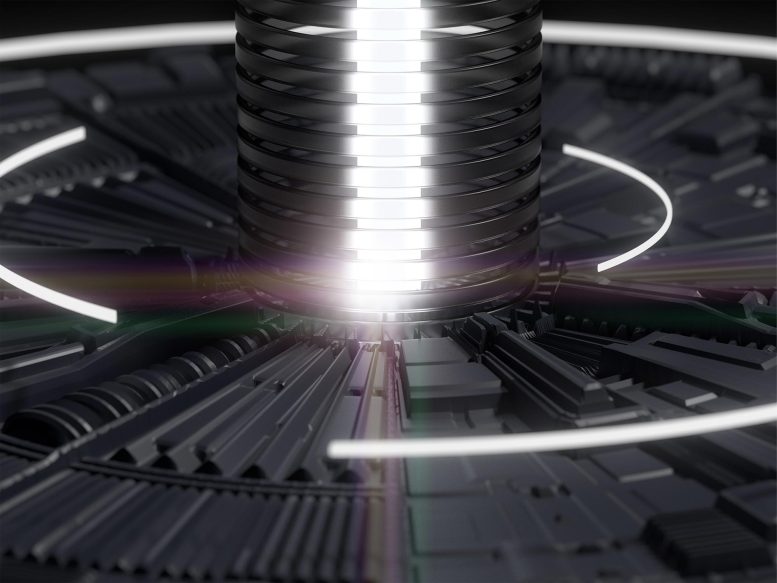
CERN is working on the Future Circular Collider (FCC), a possible successor to the Large Hadron Collider (LHC), with the European Strategy for Particle Physics confirming its scientific value. The FCC would be situated in a 91-kilometer tunnel between France and Switzerland, and a feasibility study has been initiated. The first phase includes a visual inspection, followed by seismic studies and drilling in 2024. Environmental aspects, such as geological characteristics and landscape effects, will be assessed, and the project must adhere to sustainable development principles. A decision about the FCC will be made in 2028, with potential commissioning in the 2040s. The FCC would optimize and extend the life of existing infrastructure while furthering our understanding of the universe.
The first phase involves a major geographical, geological, and environmental data-gathering effort.
CERN is exploring the Future Circular Collider (FCC) as a potential successor to the LHC, with a feasibility study underway. The FCC would be located in a 91-km tunnel between France and Switzerland. A decision on the project will be made in 2028, considering environmental and sustainable development factors. If approved, the FCC could be commissioned in the 2040s, optimizing existing infrastructure and advancing our knowledge of the universe.
CERN’s main facility, the LHC, will complete its mission around 2040, and the international particle physics community is already working on various options for the design of the accelerator that will succeed it.
One of these options is the Future Circular Collider (FCC), which would be installed in a tunnel measuring some 91 kilometers in circumference at a depth of between 100 and 400 meters on French and Swiss territory, passing under Lake Geneva.
The scientific value of the FCC was confirmed by the European Strategy for Particle Physics, which was updated by the CERN Member States in 2020, as the most suitable option to take over from the existing facilities.
CERN was therefore tasked by its Member States with initiating the Feasibility Study.
In 2028, depending on the results of the Study, the Member States will take a decision about the project as a whole, and in particular about the prospects for commissioning the FCC in the 2040s.
For now, CERN will be conducting initial assessments on the ground in order to refine the existing geological and seismic data as well as the data on the fauna and flora for conservation purposes. The first phase will involve a visual inspection of the areas of land concerned, and will be followed in 2024 by seismic studies and drilling. The project’s environmental aspects, namely the geological characteristics of the tunnel and surface sites and the effects on the landscape, will also be studied.

Timeline of CERN’s main accelerators since the Laboratory was founded and looking ahead to the FCC. Credit: CERN
The results of these assessments will make it possible to refine the placement scenarios and determine which should be prioritized if the project is approved, taking into account both the environmental objectives for the areas on the surface and the underground constraints.
This work is being carried out in conjunction with local stakeholders to ensure that future activities will take all the relevant aspects and different interests into consideration. CERN, France, and Switzerland are working together closely to identify and resolve any issues that might arise from the FCC’s planning and construction, which must respect sustainable development principles. In this regard, CERN has already made environmental commitments in all its areas of activity, based on the “avoid–reduce–compensate” principle. It is working with local stakeholders to ensure that the project is adapted to the local area and its priorities and fosters cooperation, along the lines of the initiative that is already in place to recover waste heat from CERN’s accelerators to heat a nearby residential complex.
Operating as part of one of the most sophisticated scientific complexes in the world, the FCC, if it goes ahead, would optimize and extend the life of the existing infrastructure until the end of the twenty-first century, while helping to further our understanding of the Universe.

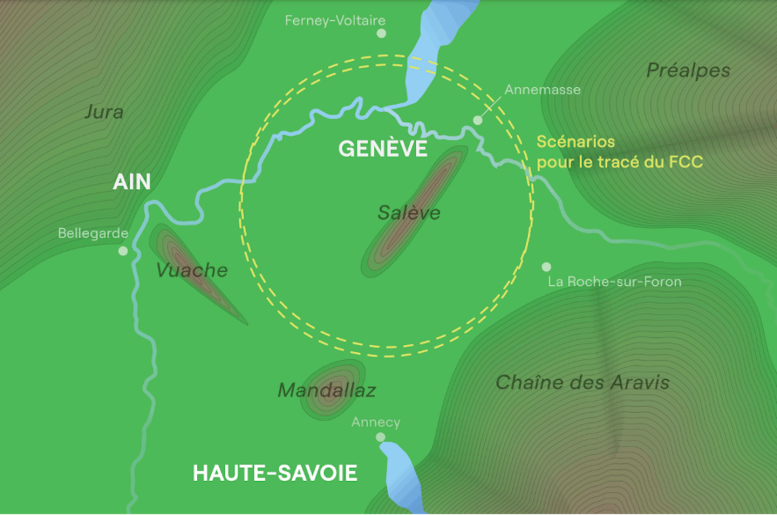
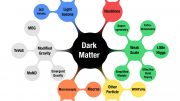

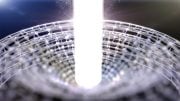




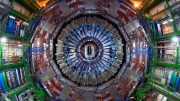
Amazes me how we have so much money to blow on this s***, when we could be concerned about sustainable fusion power. Priorities are f***ed.
Magnificent